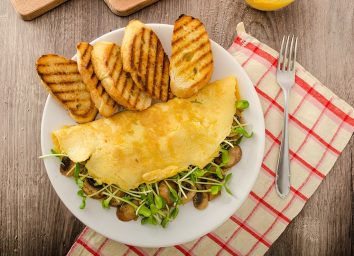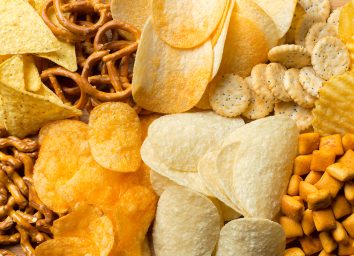20 Foods That Fight the Winter Blues
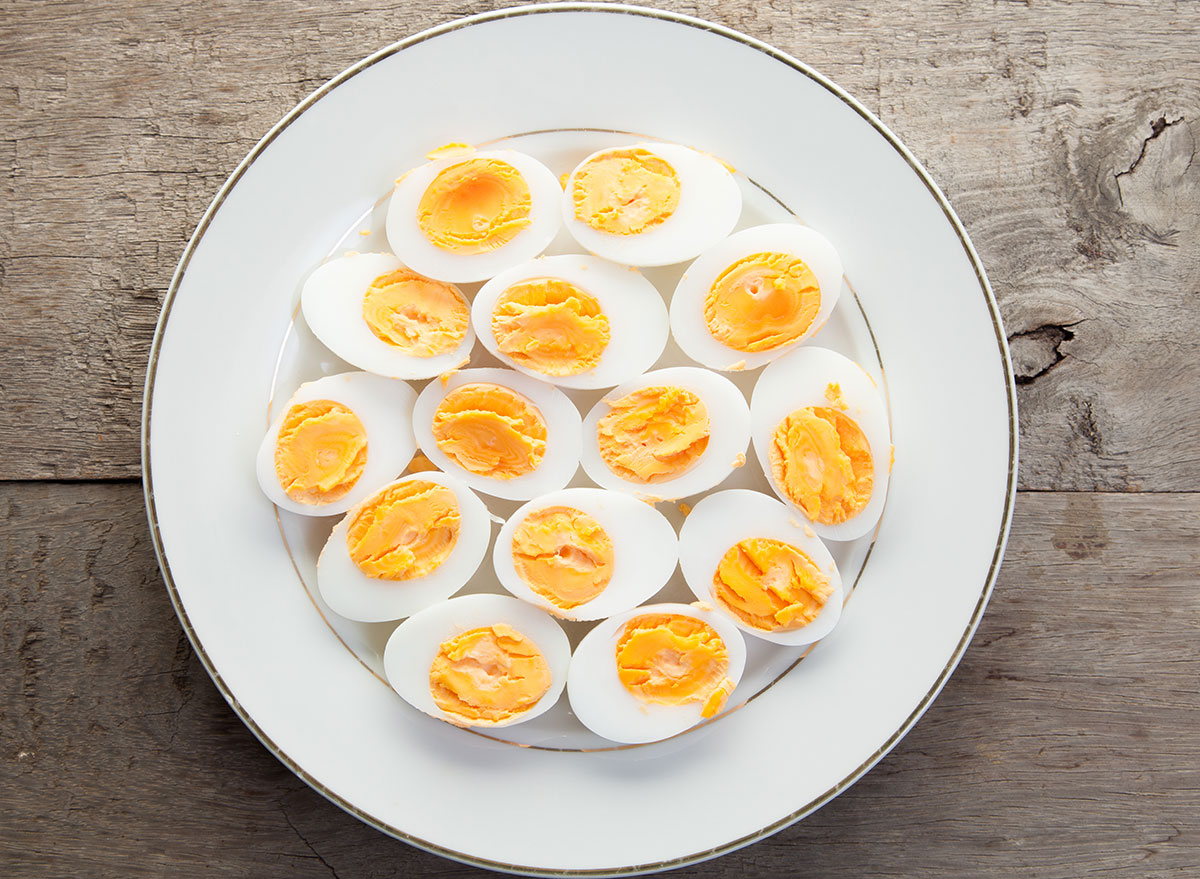
Winter brings breathtaking snowy vistas, warming soups, and cozy nights on the couch with a good book. Winter also brings less daylight, frigid temperatures, and sluggish moods. For some, as you spend more time indoors, developing the winter blues or Seasonal Depression, also known as Seasonal Affective Disorder or SAD for short, is an unfortunate norm.
"As the leaves fall and the snow days start, people often experience SAD, a kind of depression that's associated with the changing seasons. Typically, these symptoms begin in autumn and carry on through the winter months, reducing your energy levels, increasing your moodiness, and affecting your sleep," says Bonnie Balk, Registered Dietitian and Health & Wellness Expert for Maple Holistics.
"As a result, people tend to gain weight, as their appetites change and their carb-cravings escalate. Some factors that may increase your risk are: a family history, depression, and those living far north or south of the equator (with less sunlight during the day). Although it's debatable where the cycle of poor eating and winter blues begins, cutting off this 'ferris-wheel effect' with food is a good place to start. Research has shown that having a healthy dietary pattern is linked with a decreased risk of experiencing depression." Of course, if you suffer from SAD, it's important to couple a nutritious diet with regular talk therapy, meditation, and other stress-busting activities like yoga or spending time with friends.
To improve your daily nutrition, there are some simple tweaks you can make to your routine to start. "Whether you are suffering from the winter blues or you have the blues during other times of the year, take a look at your diet," says Amanda A. Kostro Miller, RD, LDN, serves on the advisory board for Smart Healthy Living. "There are some dietary changes that you can make in order to give your brain chemistry a leg up to help you potentially feel better."
Below, nutritionists weigh in on the 20 foods to reach for to ward off the winter blues and SAD. And when you're feeling better, why not add any of The 7 Healthiest Foods to Eat Right Now to your rotation!
Eat Enough Carbs
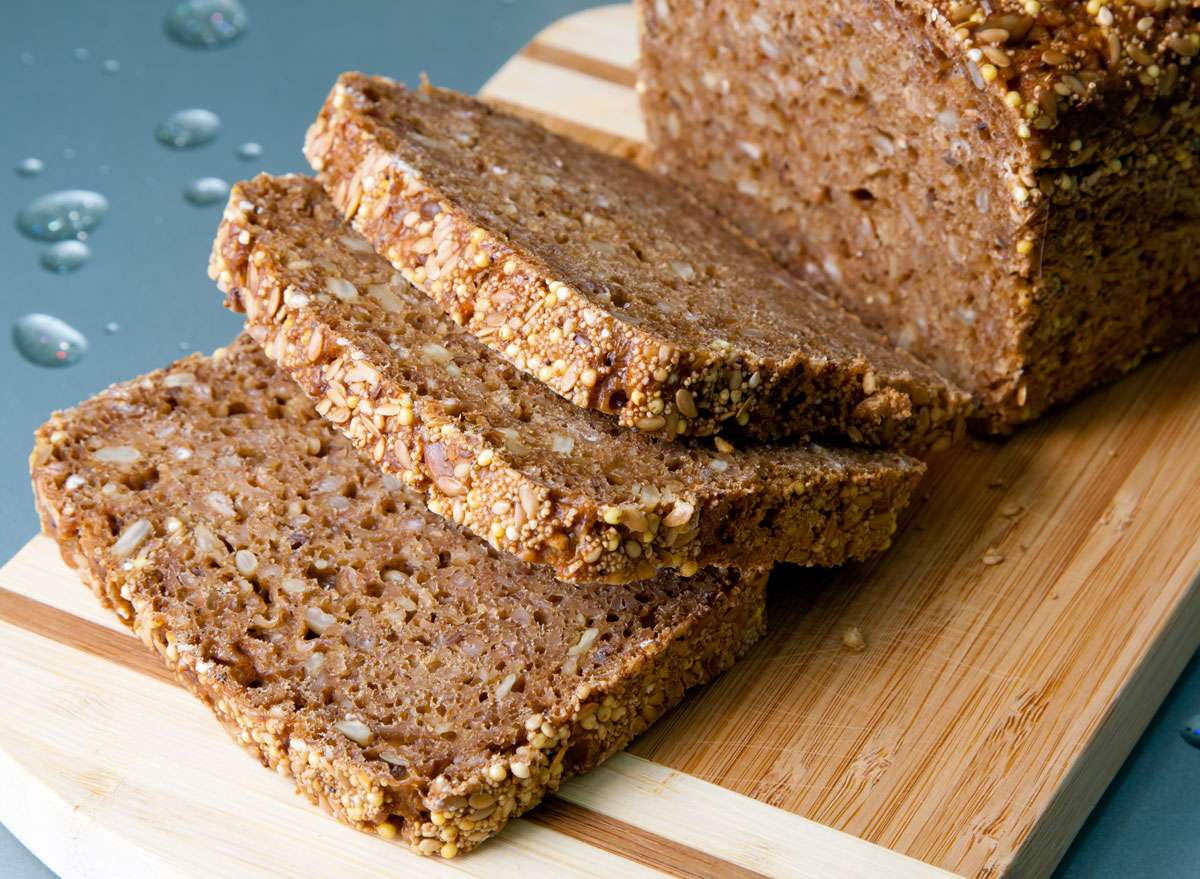
First things first, eating wholesome carbs like whole-grain bread, brown rice, and whole-wheat pasta is especially key. "Make sure you are eating enough carbohydrates since carbohydrates are an indirect way to manipulate tryptophan to boost mood. In the most basic sense, carbohydrates allow for tryptophan to breach the blood-brain barrier by pushing other nutrients out of the bloodstream and into the cells, allowing tryptophan to do its work (and create serotonin)," explains Kostro Miller.
Salmon
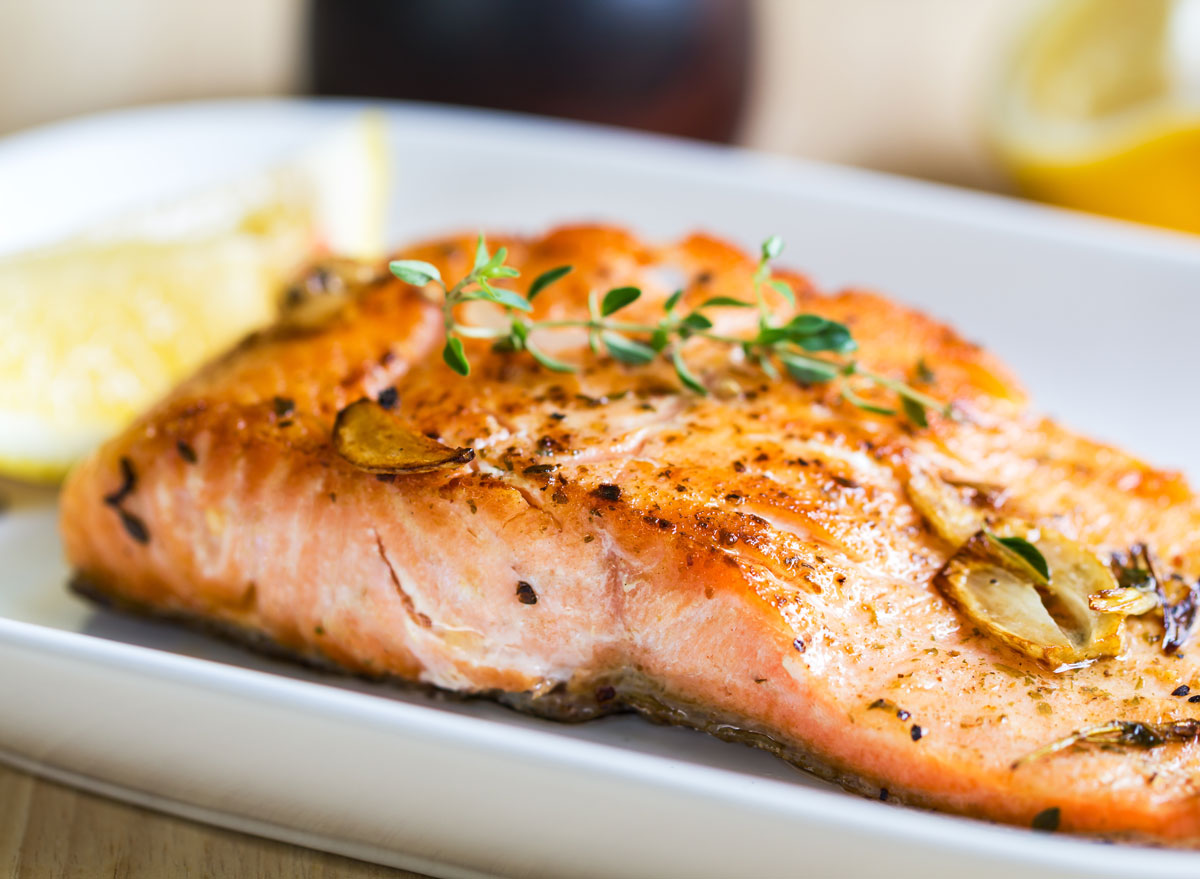
"As salmon is loaded with healthy fats, namely omega-3 fatty acids, it's a great choice for combating the winter blues. Omega-3 fatty acids play a key role in brain development and behavior, as it contains anti-inflammatory qualities and impacts dopamine and serotonin transmissions," explains Balk. "Not only is salmon loaded with protein, vitamins, and minerals, its strong link to brain functioning and maturation makes it an ideal dinner option on a cold winter night."
Vitamin D-fortified Milk
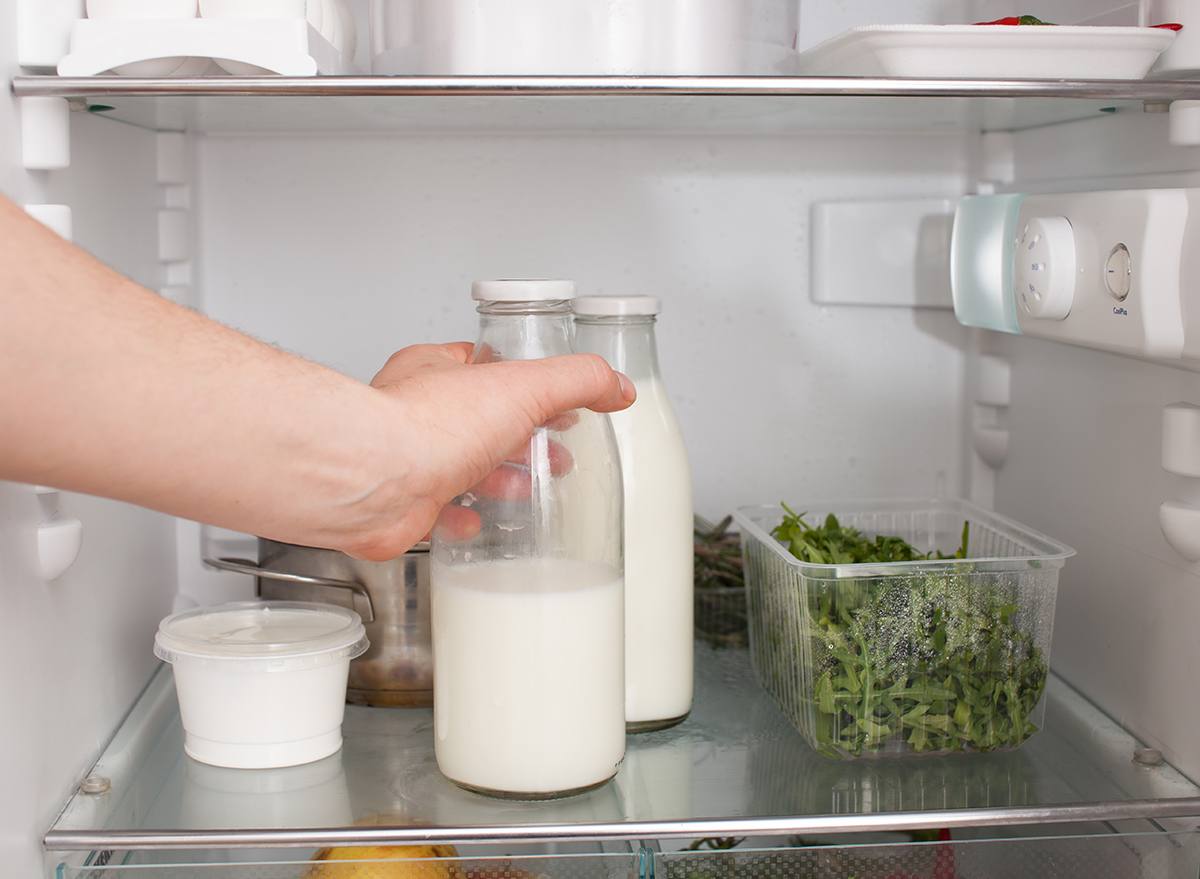
"One of the things being studied as a cause of winter blues is Vitamin D deficiency. Vitamin D plays a huge role—not only in immune systems but also with mood," says Dr. Yeral Patel, MD. "Although it has not yet been proven, there have been studies conducted and published which demonstrated that patients who were treated with light therapy had elevated Vitamin D levels and felt less depressed compared to those individuals who did not receive light therapy." If you can't make it out into the sun, you can pick up a carton of milk from the grocery store. Just make sure to look out on the label for "Vitamin D Fortified," as not all kinds of milk contain vitamin D naturally.
Shiitake Mushrooms
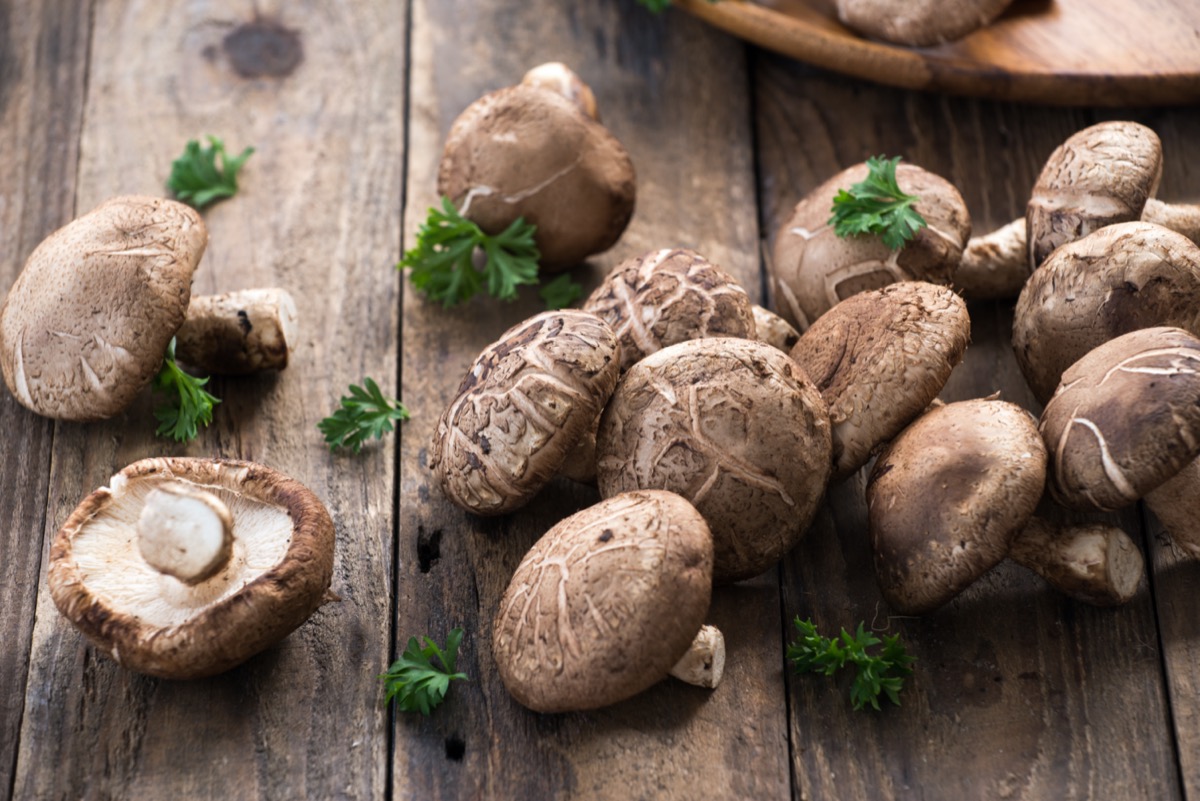
To that point, Dr. Patel is a fan of eating foods rich in vitamin D. "Shiitake mushrooms contain loads of vitamin D that is beneficial for mood and provides a good boost to the immune system," she says. "Mushrooms have been studied extensively for their beneficial effects on the brain and the Shitake mushroom is the most accessible of those studied."
Legumes
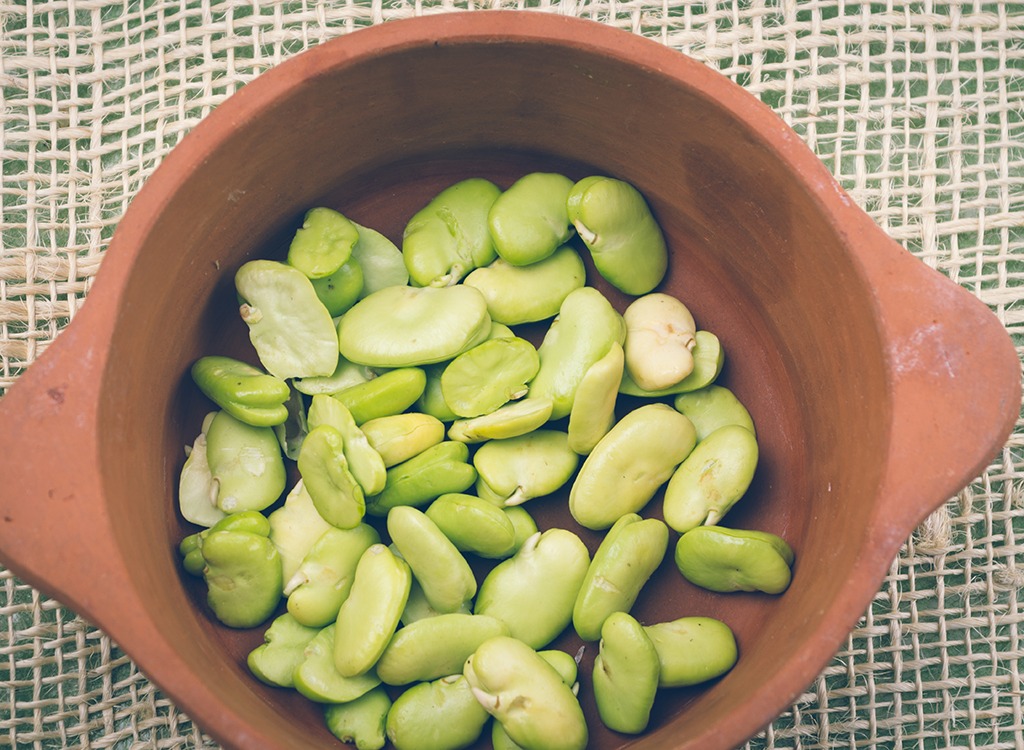
Beans, beans, they're good for your… mood. "Lentils, black beans, kidney beans, and black-eyed peas have vitamins like folate and vitamin B6, which help keep your dopamine levels stable," offers Mike Dow, PsyD, PhD, author of Sugar Brain Fix: The 28-Day Plan to Quit Craving the Foods That Are Shrinking Your Brain and Expanding Your Waistline. "Folate, also known as vitamin B9, plays a large role in mood regulation, so much so that it has become available as a prescription to treat depression."
Tuna
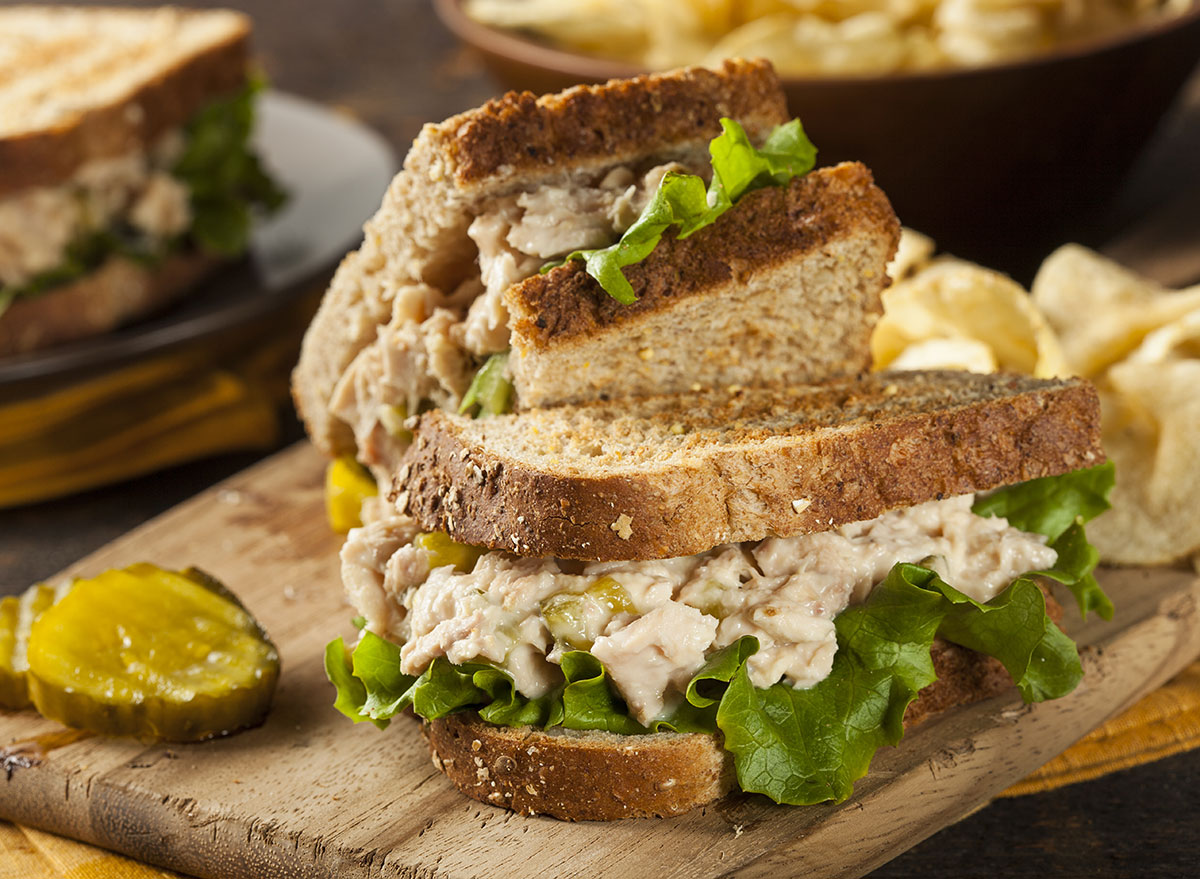
"Tuna is an option with good Vitamin D levels and can be a great way to boost healthy fat, protein, and vitamin D intake for those who are on the run," advises Randy Evans MS, RD, LD and consultant of Fresh n' Lean. "Tuna is a wonderful, portable food and easy to carry for lunch, to add protein to a salad, make a sandwich, and more." Check out our favorite healthy tuna veggie melt recipe.
Turmeric
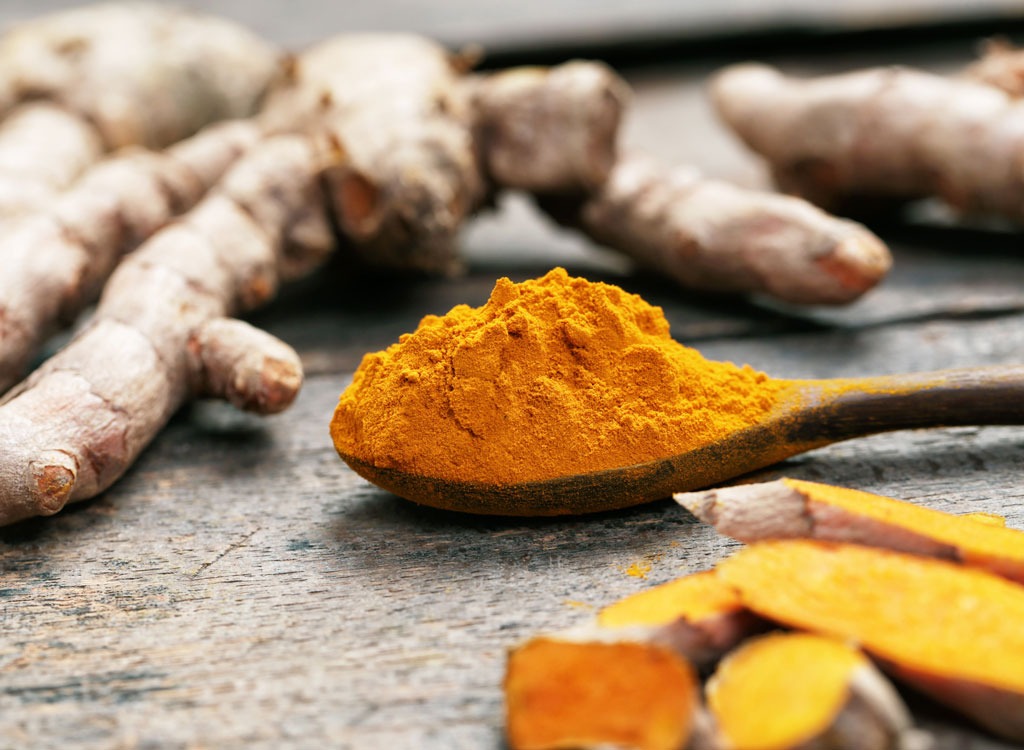
This potent plant may be a boon for your mental health. "One 2014 study found that turmeric was as effective as prescription antidepressants in treating depression," says Dow. "Try a turmeric wellness shot daily: Combine half a teaspoon of turmeric and black pepper with an ounce of cold water. For an extra eye-opening boost, toss these two ingredients in a blender with fresh lemon juice, cayenne pepper, and/or ginger." For more on this golden root, read 14 Science-Backed Health Benefits of Turmeric.
Walnuts
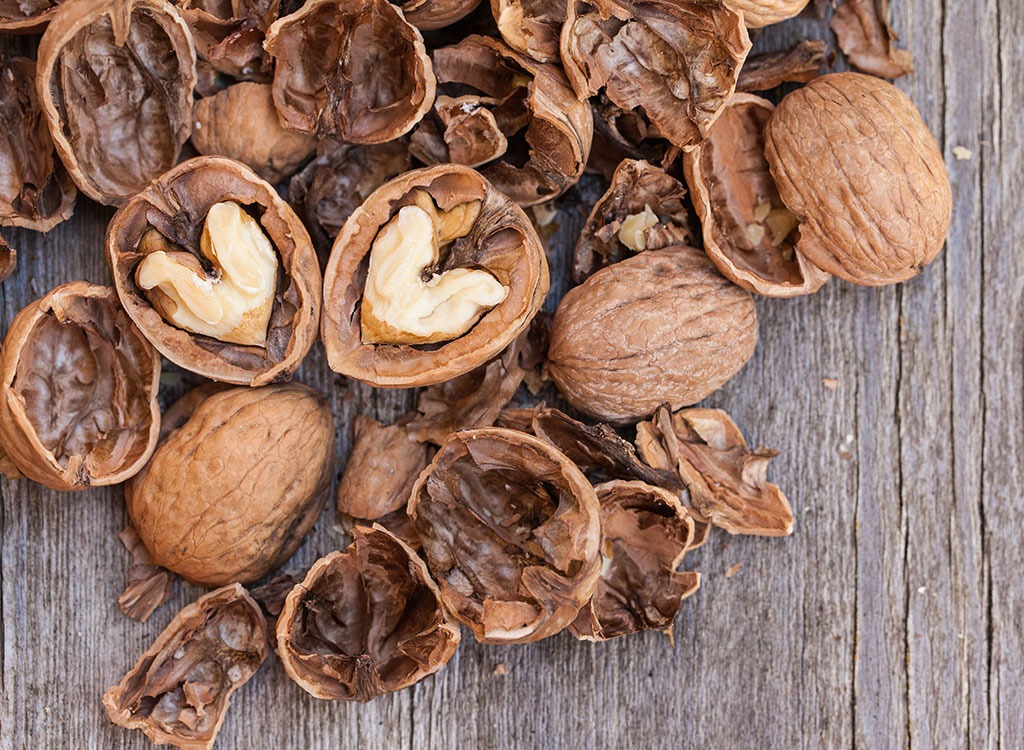
"As walnuts are packed with omega-3 fatty acids, they are a great boosting food to counter the winter blues. In addition to containing anti-depressing properties, research shows that walnuts are bundled with antioxidants and are seen to suppress cancer cell growth in vitro," says Balk. An excellent snack, we also love adding walnuts to oatmeal or salads to add some crunch.
Eggs
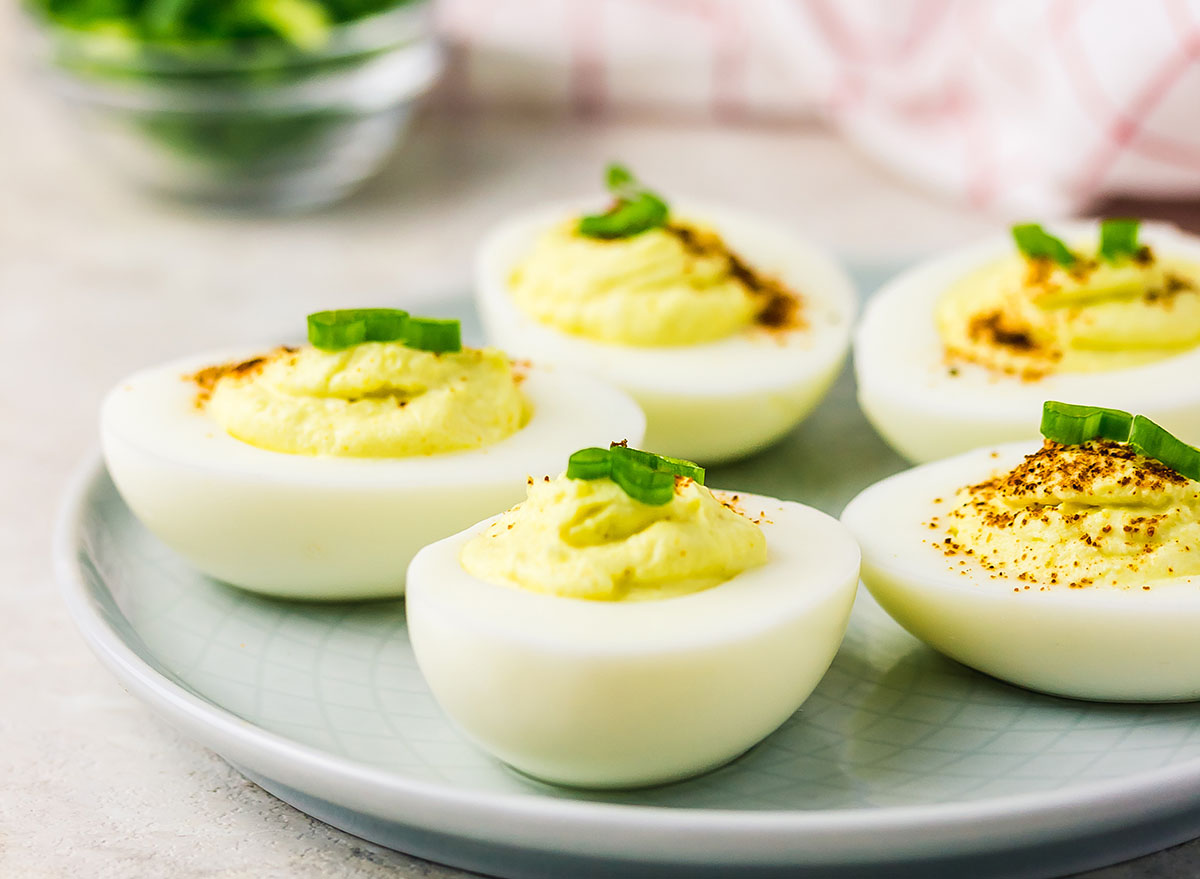
More to love on the vitamin D front. "Eggs are full of a variety of health benefits, including their high vitamin D content. Studies have shown that low vitamin D levels are linked with depression," notes Balk. "As direct sunlight is a key source of obtaining vitamin D, deficiency of this nutrient, and thereby depression, only escalates in the winter months when the days are shorter and darker. You can get creative with incorporating eggs into your diet, such as an egg-and-vegetable breakfast cup or a veggie-filled quiche for lunch."
Sardines
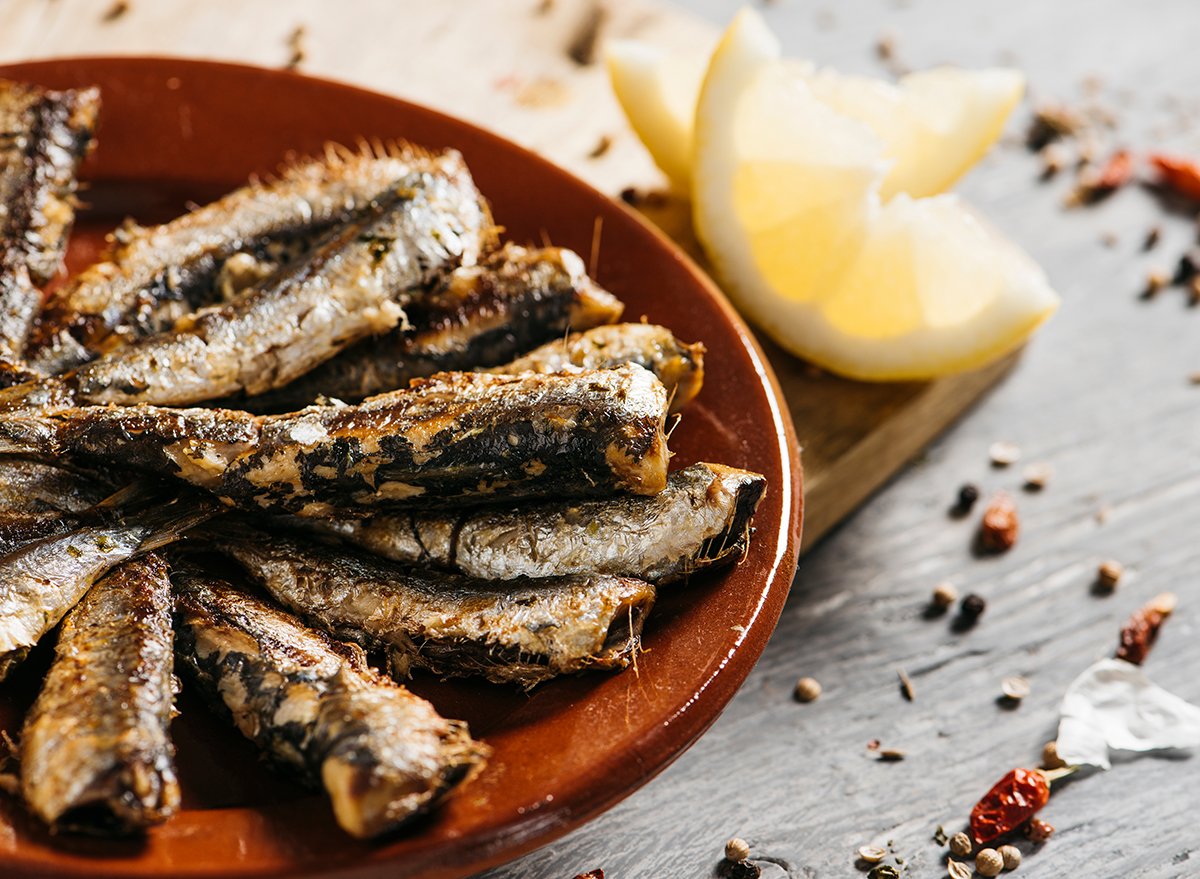
While Evans thinks eggs are a more likely choice for the average consumer, sardines boast even more Vitamin D. "Remember with animal products it's best to look for healthier versions, wild like wild-caught, grass-fed, or organic. This can boost nutrient intake including vitamin D. When cooking these healthy foods try not to overcook as this can impact the vitamin D level in the finished product."
Spinach
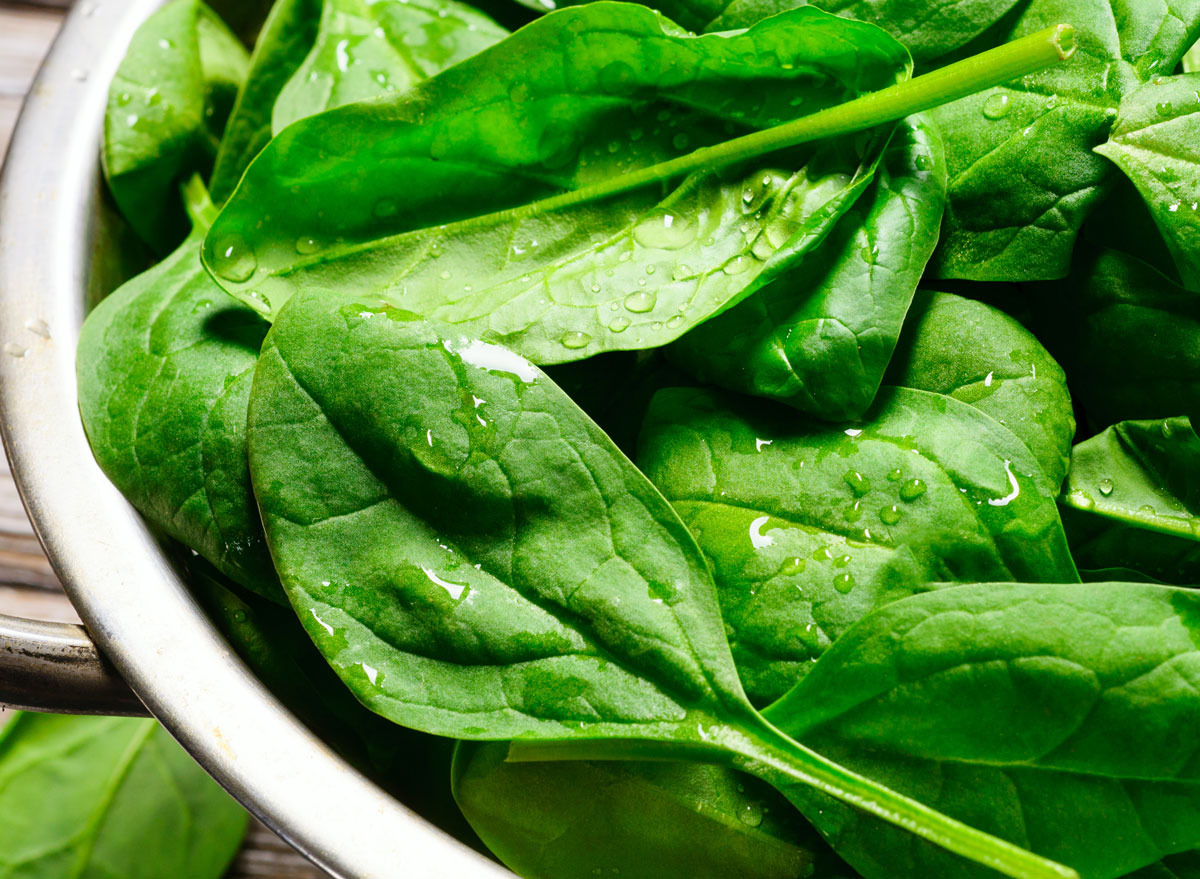
Popeye loves this tasty green for good reason. "Spinach is a good source of folate. On average, it has been observed that patients with depression have on average 25% lower blood folate levels in comparison to patients without depression," shares Maya Feller MS, RD, CDN author of The Southern Comfort Food Diabetes Cookbook. "Dietary folate helps support the endogenous production of dopamine, a pleasure-inducing brain neurotransmitter, that is integral to regulating mood."
Almonds
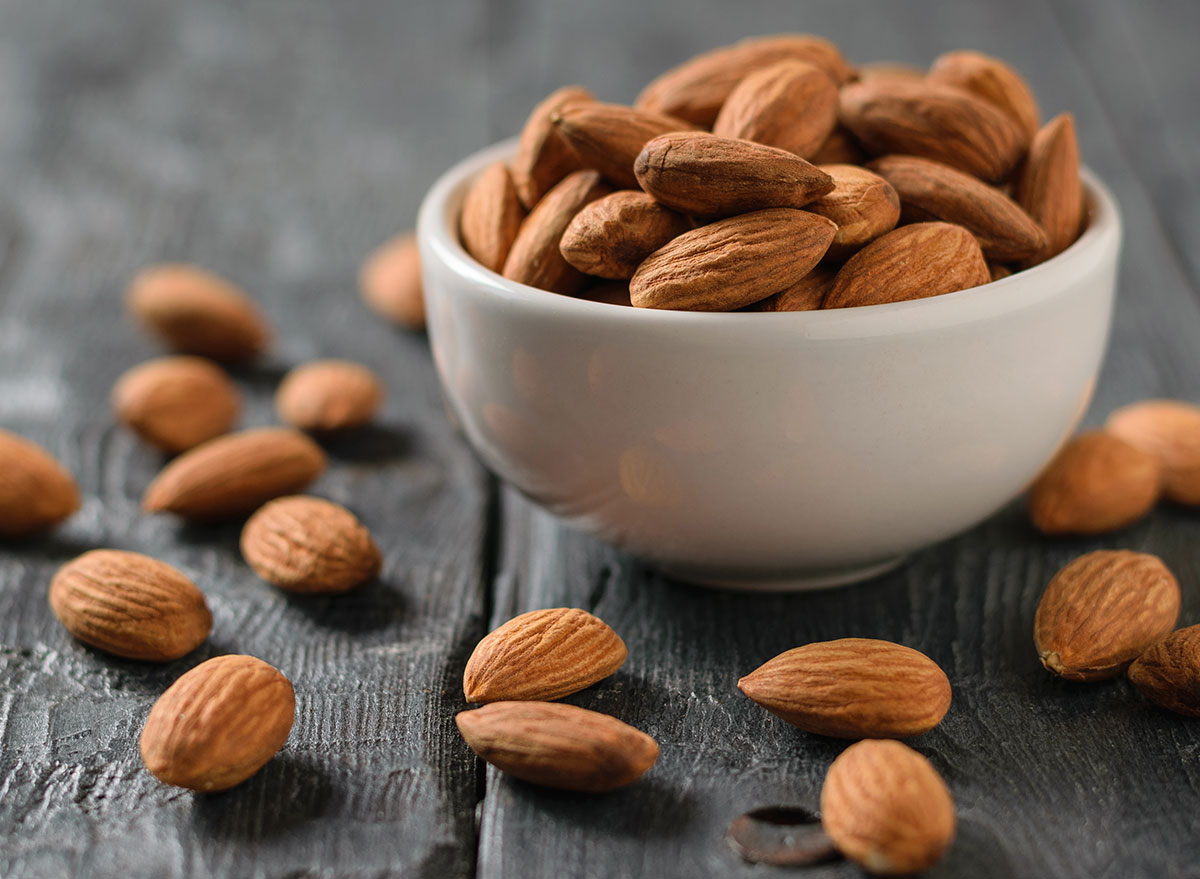
"One ounce of almonds are an excellent source of the antioxidant vitamin E and magnesium. The role of magnesium in depression has been researched because of its importance in regulation of neurological pathways," says Feller. "Research has shown that magnesium deficiency can increase the risk of developing depression and some types of anxiety." Bonus: If you're looking to slim down, almonds are one of the best nuts for weight loss.
Fruit, Especially Berries
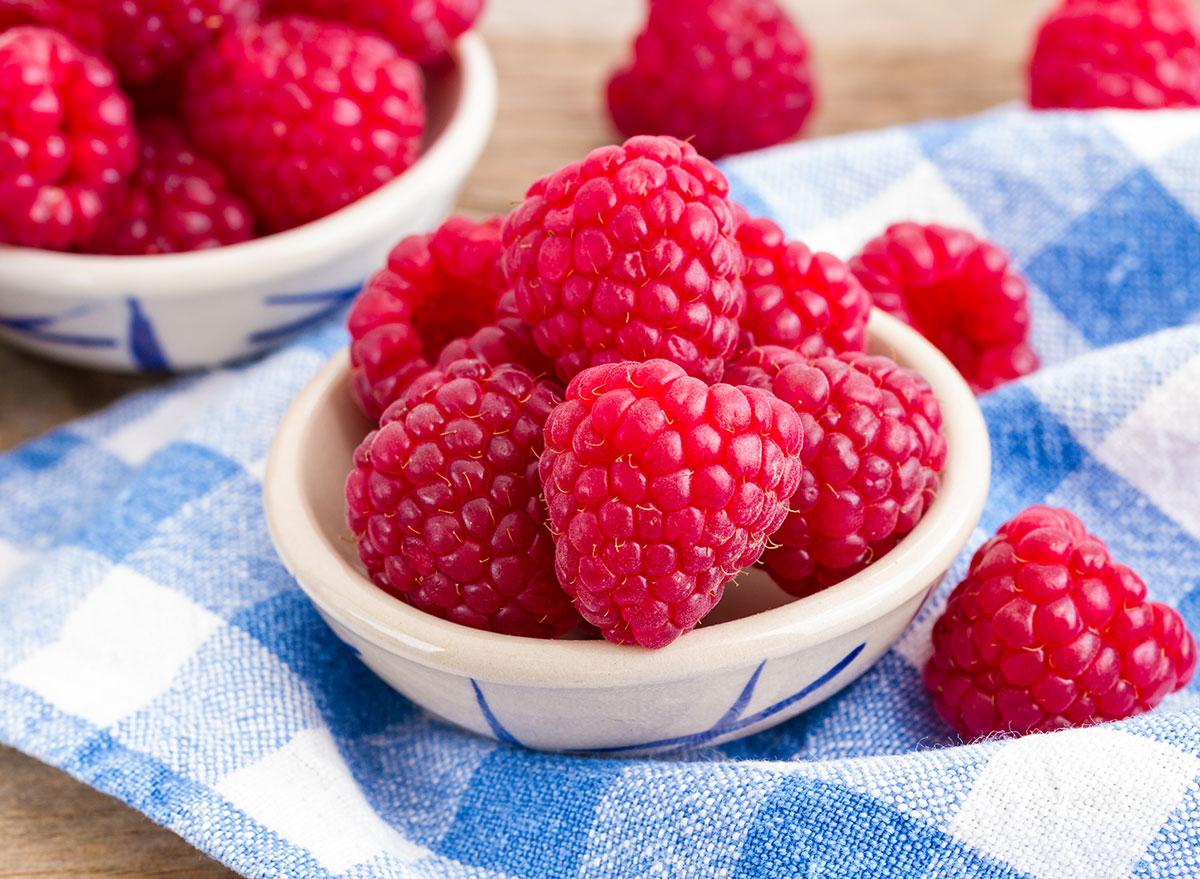
You don't have to tell us twice to add more tasty fruit to our diet. "Fiber is a massive driver of good bacteria in the gut 90% of all serotonin is generated in the gut, and most Americans get way too little of it. Some berries (like blueberries) have also been shown to reduce cortisol, a hormone that can affect mood," explains Dr. Ian Smith, MD, Chief Medical Advisor for Jetson.
Dark Chocolate

And you definitely don't have to tell us twice to eat more dark chocolate. "Dark (and I mean dark—not milk!) —chocolate contains polyphenols, a great antioxidant that has also been shown to improve brain function and mood," says Dr. Smith.
Plant-Based Foods
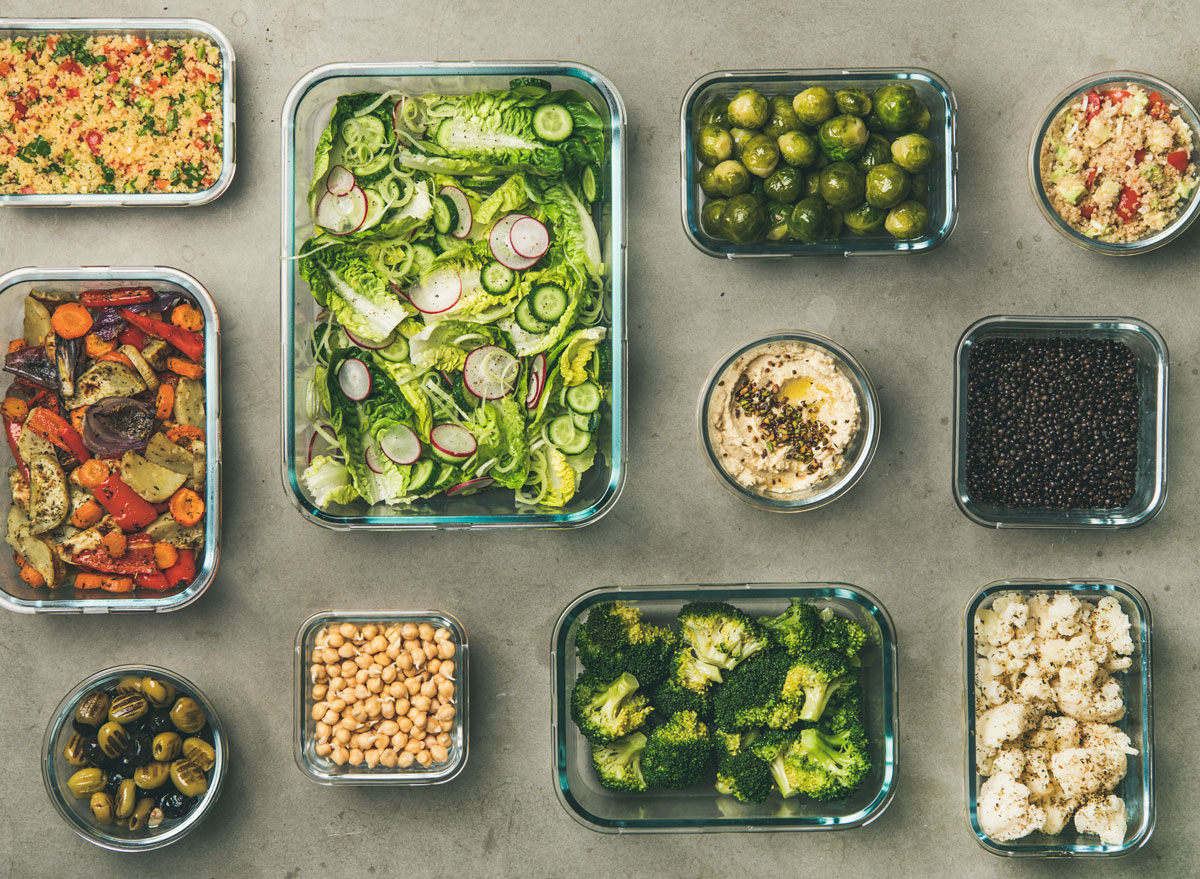
"Cut the sugar and fat—and eat a variety of mostly plant-based foods. Eating the rainbow has never been more true—and I don't mean Skittles," offers Dr. Smith. "Different types of food feed different species of bacteria in your gut," which will support your microbiome: one of the major control centers for your immune system. For some help eliminating sugar from your diet, check out the 30 Easy Ways to Stop Eating Sugar So Much.
Avocados
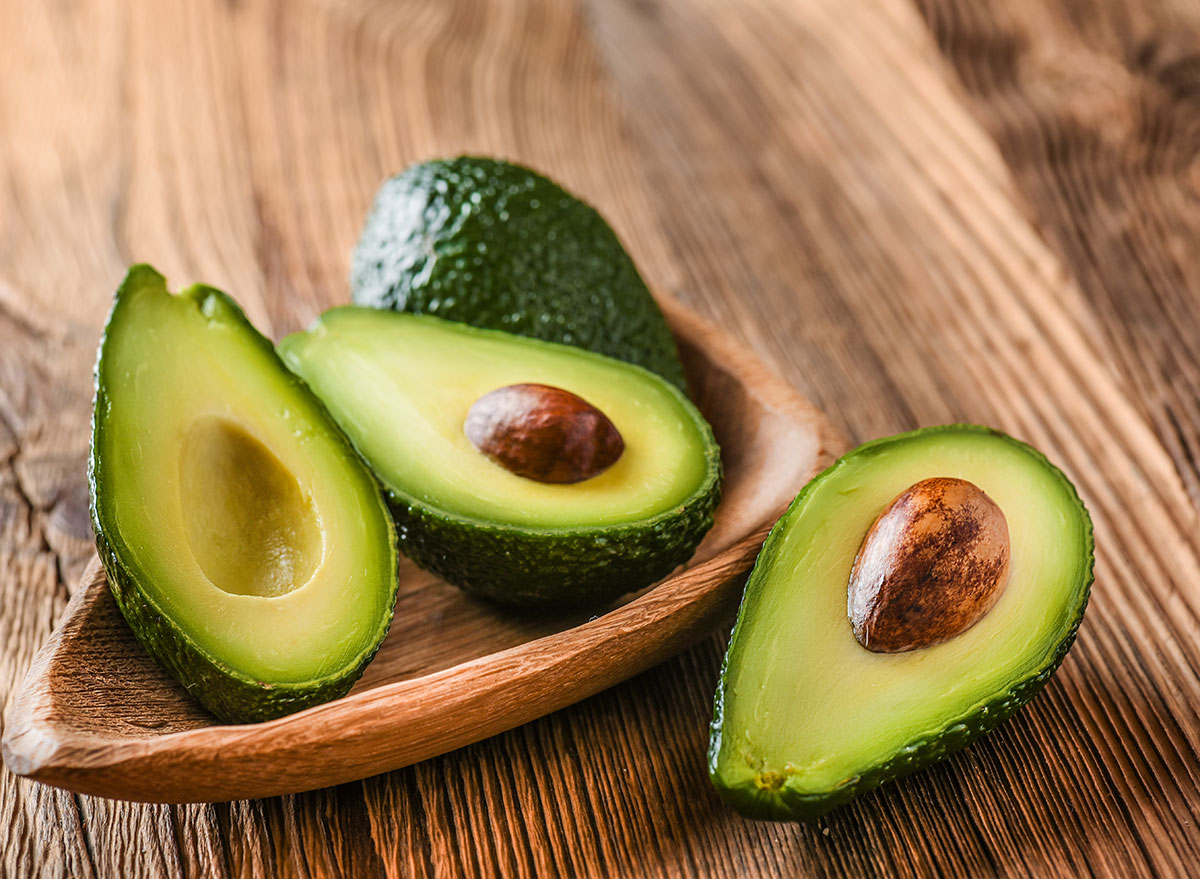
Samantha Presicci, MCN, RD, LD, CPT, the Lead Registered Dietitian at Snap Kitchen points us toward this pitted superfood: "Avocadoes are predominantly made up of monounsaturated fats, which contain high amounts of omega-3 fatty acids. Omega-3 fats help decrease inflammation in the body, and healthy fats like avocado help the brain perform optimally and react positively to stress," she says. "Our brains are more than 60% fat, after all! Avocados also contain B-vitamins like thiamin, riboflavin and niacin, which all affect the nervous system. Regularly eating foods rich in these nutrients can help decrease anxiety and relieve stress."
Fermented Foods

"Prebiotics and probiotics help balance the beneficial and more harmful bacteria strains in the gut. Two of the most common strains of probiotics (Lactobacillus helveticus and Bifidobacterium longum) often found in fermented foods have been shown to reduce symptoms of anxiety and depression," comments Presicci.
Eat Tryptophan-Rich Foods

We've covered some of these above, but it bears repeating: "Eat foods that are rich in tryptophan. Such foods include turkey, eggs, salmon and other high-protein items. Tryptophan is the amino acid that leads to serotonin production to make you feel better," says Kostro Miller. "For healthy cooking methods (with the exception of the eggs), opt for grilling, baking or sauteing your high-tryptophan foods."
Egg Yolks
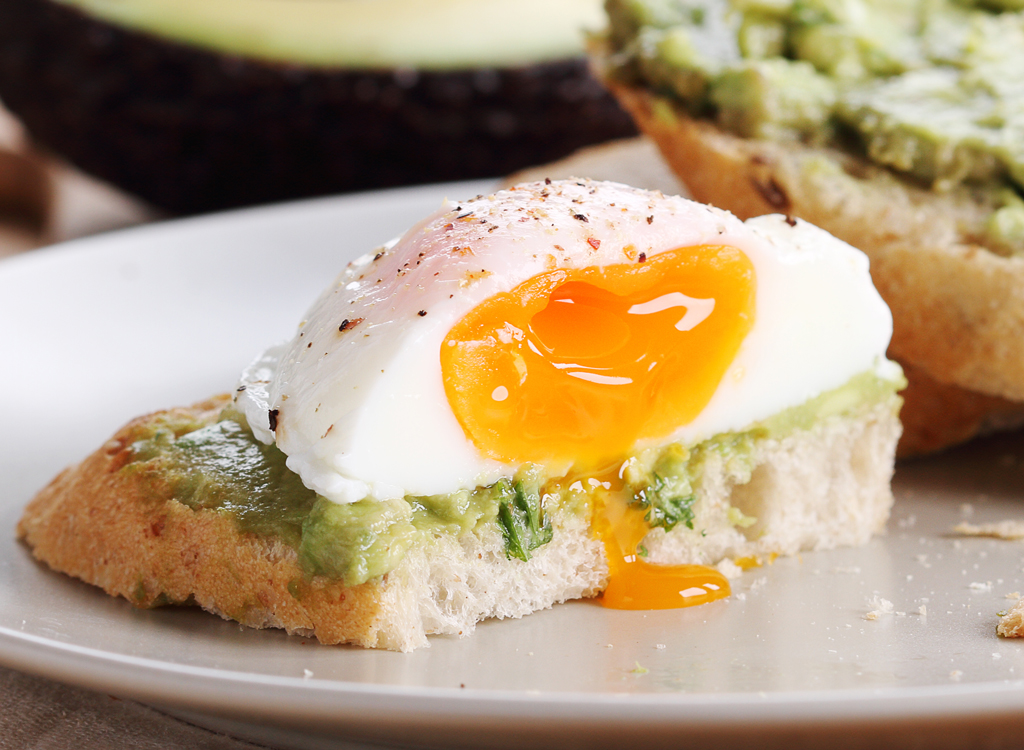
If you're not a huge fan of eggs, consider simply adding more of the nutrient-dense yolk to your diet. "Egg yolks are high in Vitamins D, [and] E," notes Dr. Patel. See #9 above for more on what makes eggs such a superfood. When possible, always opt for organic eggs or buying them from a local farmer you trust.
Eat Plenty of Probiotics
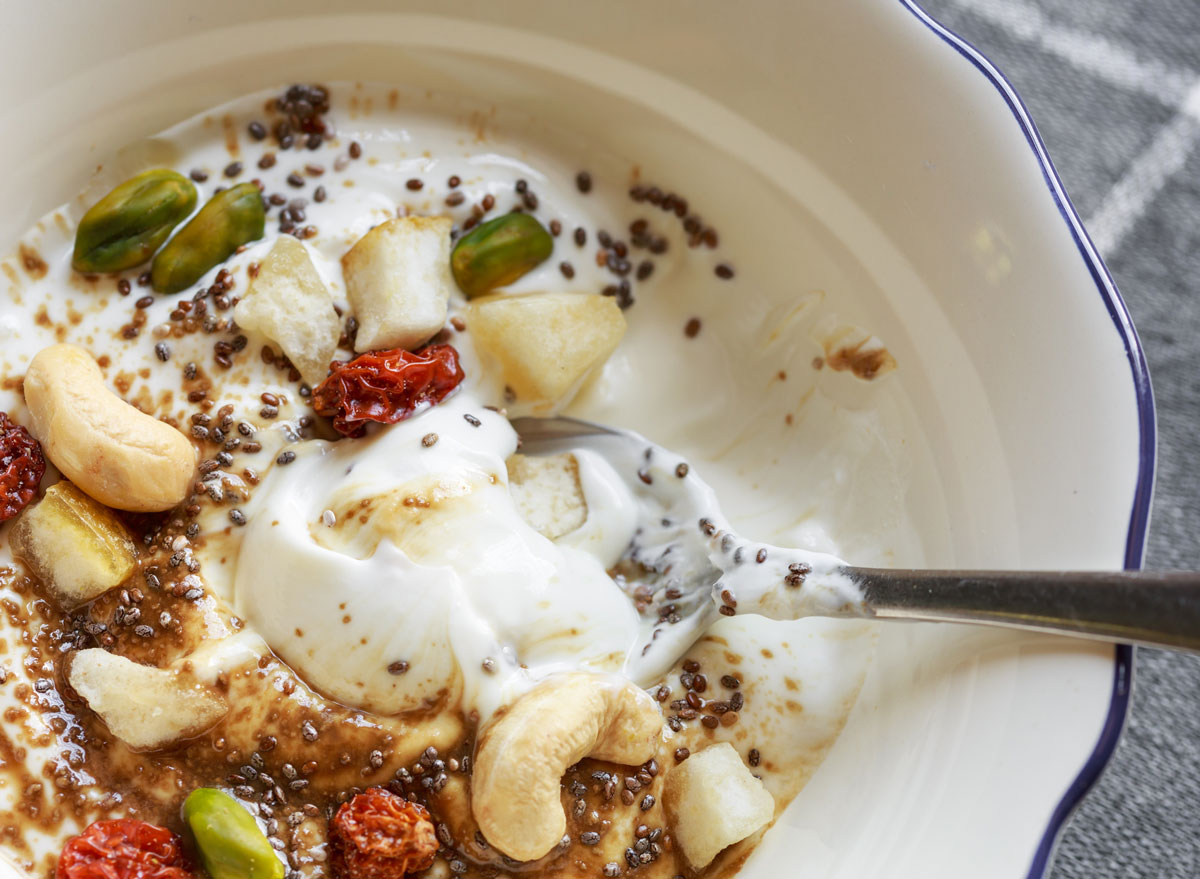
"Make sure you are getting some probiotics from foods like fermented foods, yogurt, kefir and probiotic supplements," suggests Kostro Miller. "Probiotics can help you have a healthy gut. According to the research, your gut and mental health may have an effect on one another, so give yourself an advantage by keeping your gut healthy." Dr. Smith bolsters Kostro Miller's points, noting, "In the past 10 years or so, the number of studies that have linked gut health to mental health have exploded, including this great one that linked three probiotic strains to a lessening of depression in patients. A healthy gut can produce the serotonin levels needed for a stable and happy mood." Not sure which one to add to your diet first? See our guide to probiotic foods for a healthy gut.
